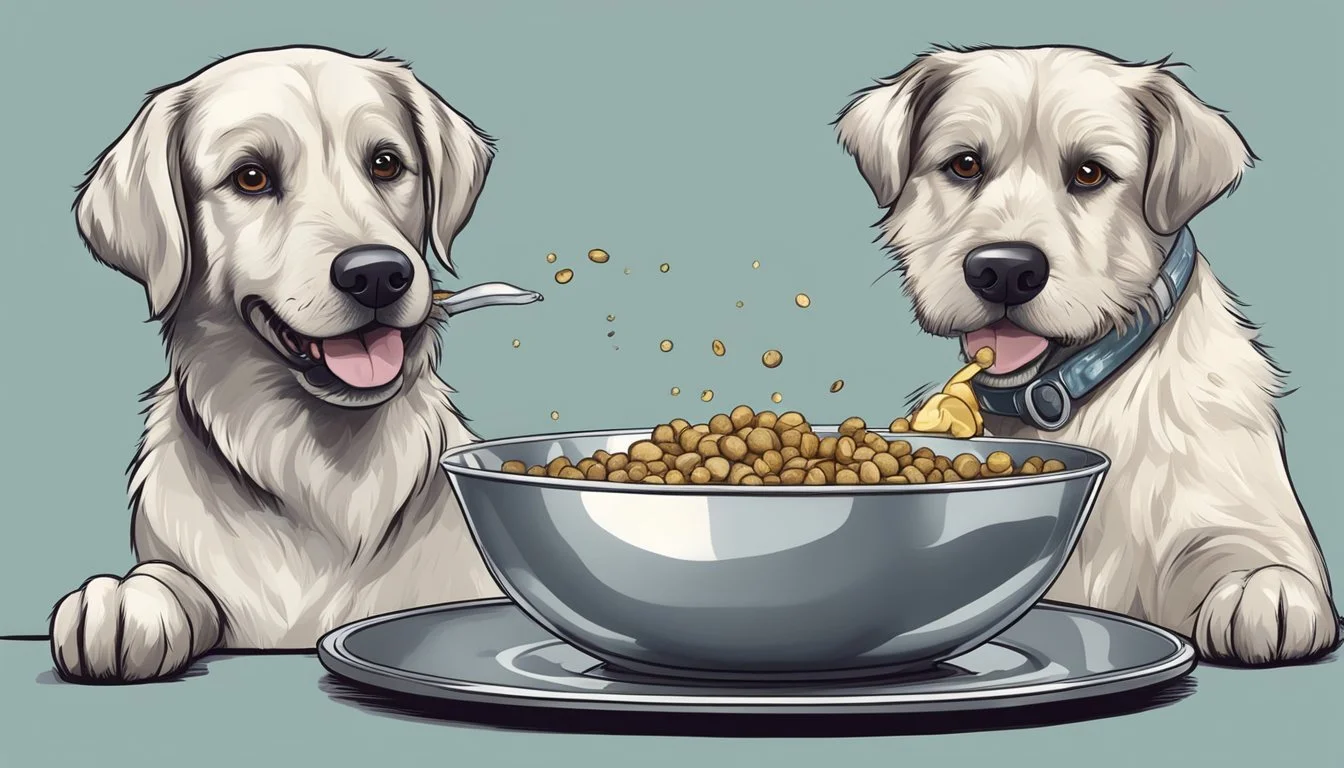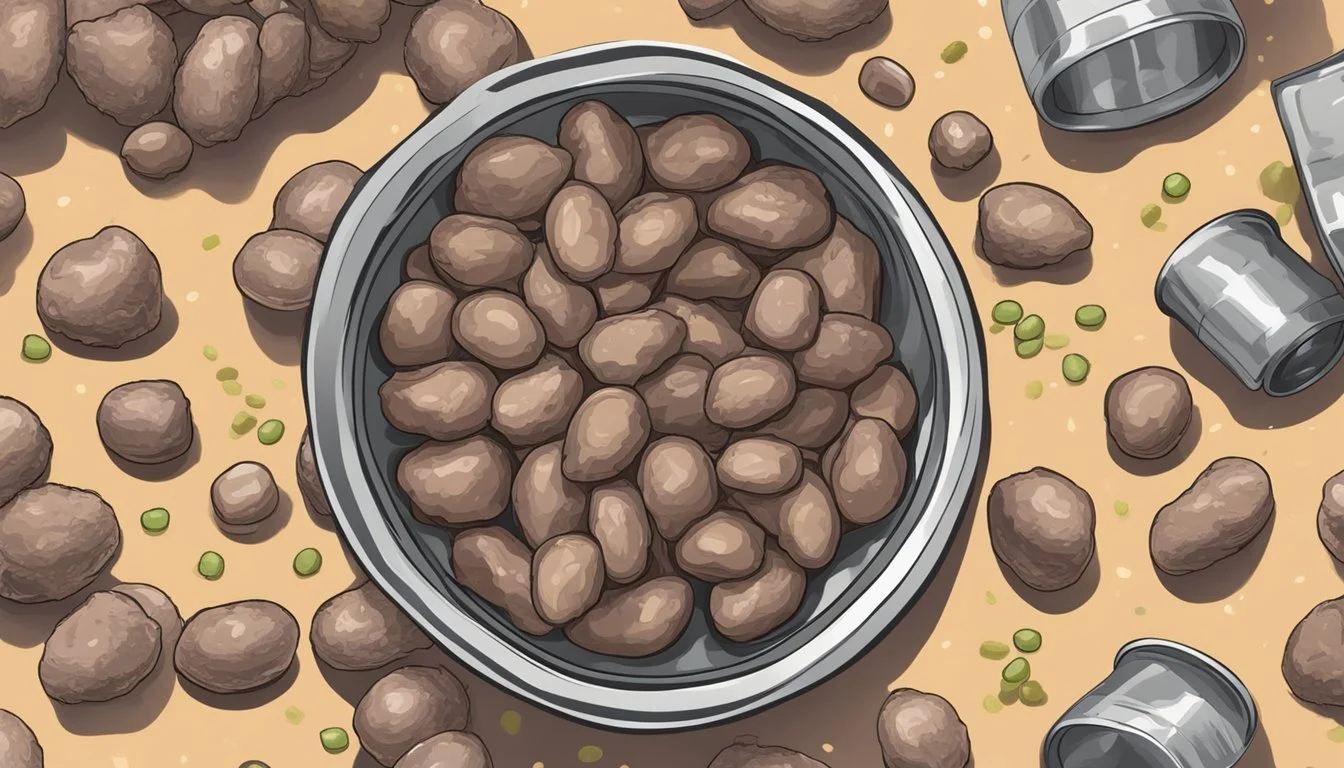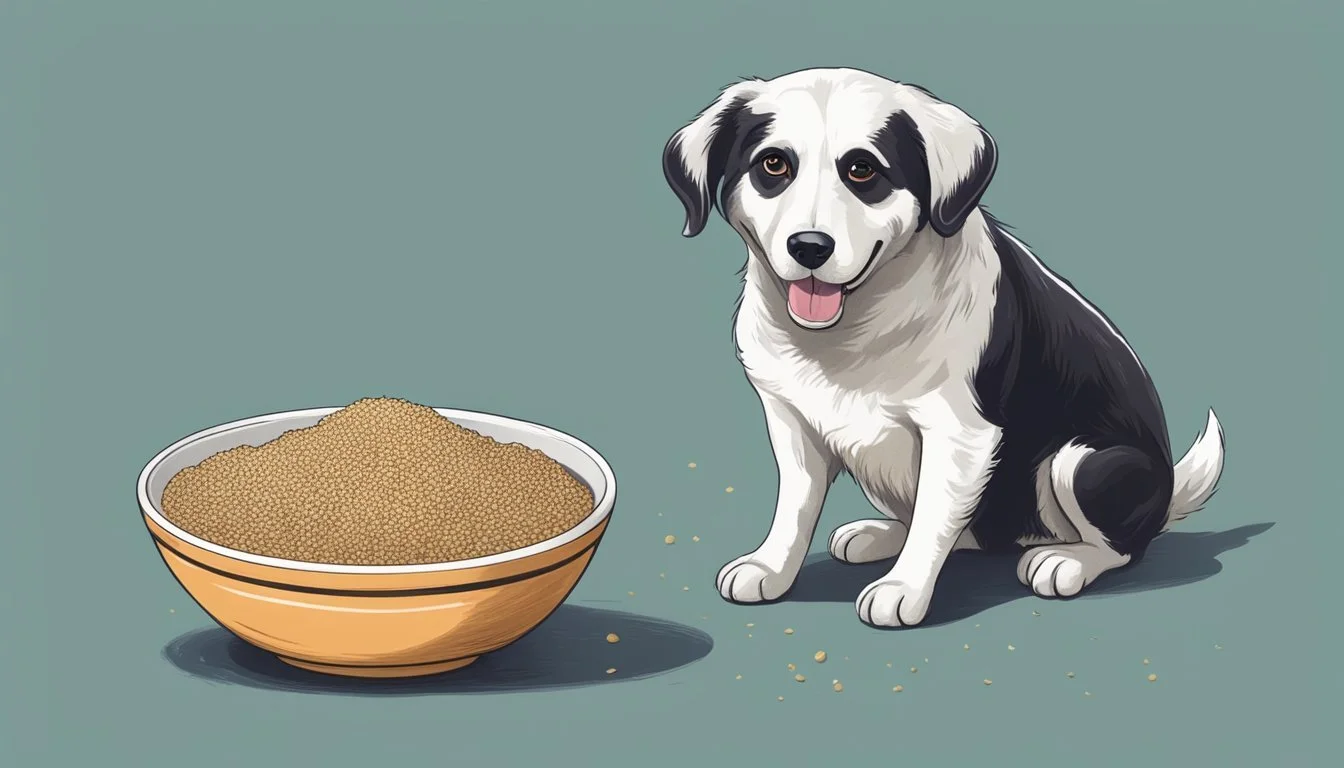Top 10 Zinc-Rich Foods for Optimal Canine Health
Best Dietary Options
Zinc plays a crucial role in a dog’s overall health, contributing to immune function, skin health, and cellular metabolism. While commercial dog foods often contain added zinc to meet nutritional requirements, incorporating natural food sources rich in zinc can offer additional health benefits. Understanding which foods are high in zinc can help dog owners make informed dietary choices to support their pet’s well-being.
Ingesting zinc-rich foods can be particularly beneficial for dogs with specific health conditions or those needing additional nutrient support. Pet owners may find it valuable to explore different food options that provide this essential mineral, ensuring their pets maintain optimal health through a balanced diet. By selecting zinc-rich foods, dog owners can help prevent deficiencies and potentially reduce the risk of health issues associated with low zinc levels.
1) Pumpkin Seeds
Pumpkin seeds are a nutritious option for dogs, providing a good source of zinc. This mineral is essential for various bodily functions, including immune system support, skin health, and wound healing.
When offering pumpkin seeds to dogs, it's essential to ensure they are prepared correctly. Raw seeds should be cleaned and roasted without salt or seasoning to avoid any potential harm.
In addition to zinc, pumpkin seeds contain other beneficial nutrients such as magnesium, iron, and antioxidants. These nutrients can contribute to overall health, though the bioavailability for dogs might differ compared to humans.
Feeding pumpkin seeds in moderation is crucial. Small quantities can be mixed into their regular diet or used as treats. Always consult with a veterinarian before introducing any new food to ensure it suits the dog's dietary needs and health conditions.
2) Spinach
Spinach is a leafy green vegetable known for its nutritional benefits, including being a good source of zinc. Including spinach in a dog's diet can help boost their zinc intake, especially for those who might be at risk of a deficiency.
Raw spinach contains about 0.53 mg of zinc per 100 grams. Cooking or steaming spinach slightly can aid in the digestion and absorption of its nutrients, making the zinc more bioavailable for dogs.
Spinach is also packed with other vital nutrients such as vitamins A, C, and K, along with iron and fiber. These nutrients contribute to an overall balanced diet, supporting various aspects of a dog's health, including their immune system and digestive health.
Although spinach can be beneficial, it's important to feed it in moderation. Excessive amounts can lead to issues due to its oxalate content, which can interfere with calcium absorption and potentially cause kidney problems in dogs.
Integrating spinach into a dog's diet can be done by mixing small amounts into their regular food. Always consult with a veterinarian before making any significant dietary changes to ensure it suits the specific needs of the dog.
3) Chicken Hearts
Chicken hearts are a nutritious and tasty option for dogs. These organs are packed with essential nutrients, making them an excellent addition to a dog's diet.
One key benefit of chicken hearts is their high zinc content. Zinc is vital for maintaining a healthy immune system, supporting skin health, and promoting proper hormone function.
In addition to zinc, chicken hearts offer lean protein, iron, copper, and phosphorus. These nutrients help improve a dog's teeth, fur, and bone health. The presence of taurine in chicken hearts supports cardiovascular health, ensuring a robust heart function.
Cooking chicken hearts for dogs is simple. They can be air-fried, baked, or sautéed. If air-frying, set the temperature to 350°F and cook for about 8 minutes. For baking, preheat the oven to 375°F and bake for 20 to 25 minutes.
When preparing chicken hearts, it's essential to ensure they are fully cooked. This prevents any potential health risks associated with undercooked organ meats.
4) Lamb
Lamb is a robust source of zinc for dogs. It is often highlighted in premium dog foods for its rich nutrient profile. Lamb is not only packed with zinc but also provides high-quality protein, aiding in muscle development and maintenance.
Lamb meals, which include concentrated sources of lamb protein, further enhance the zinc content. This makes it an excellent choice for pets that require a zinc boost.
Some commercially available lamb-based dog foods ensure that lamb is the primary ingredient. This guarantees that your dog reaps the maximum nutritional benefits from this meat source.
Moreover, lamb-based diets are known for being gentle on a dog's digestive system. Grain-free options with probiotics are available to support gut health and zinc absorption.
Incorporating lamb into your dog's diet can significantly contribute to their overall health, particularly in meeting zinc requirements.
5) Quinoa
Quinoa is an excellent source of zinc for dogs.
It is a nutrient-rich seed that is often included in high-quality dog foods.
Quinoa not only provides zinc but also offers a good balance of protein, fiber, and vitamins.
For dogs, it is important to prepare quinoa properly before serving.
Rinse it thoroughly to remove saponins, which can cause intestinal irritation.
Cooked quinoa can be mixed with a dog's regular food in small quantities.
This ensures that dogs receive the nutritional benefits without overloading their diet.
For extra small dogs, a teaspoon or less is sufficient.
Small dogs can have about 1 to 2 teaspoons, while medium-sized dogs may consume about a tablespoon.
6) Turkey Liver
Turkey liver is a rich source of zinc for dogs. Zinc is crucial for maintaining a healthy coat, skin, and immune system. The liver is also packed with other essential nutrients that support overall canine health.
It contains high levels of protein, which aids in muscle repair and growth. The liver's vitamins A, B, and C support various bodily functions, contributing to vitality.
Minerals such as iron and copper in turkey liver further enhance its nutritional profile. These elements help in producing red blood cells and ensuring proper cellular function.
Cooking turkey liver for dogs is simple. Boiling it for 5 to 10 minutes or searing it for 3 to 4 minutes per side ensures it's safe for consumption.
Regular inclusion of turkey liver in a dog's diet can provide significant nutritional benefits, making it an excellent choice of organ meat.
7) Pork
Pork is a robust source of zinc, making it a beneficial addition to a dog's diet. Five ounces of lean pork can provide a significant amount of this essential mineral. Zinc is crucial for maintaining healthy skin, promoting a strong immune system, and supporting a dog's overall well-being.
Whole, deboned pork is especially rich in zinc. Using high-quality, lean pork in dog food can help ensure that dogs receive the necessary amount of this nutrient.
Additionally, incorporating pork into a dog's diet can provide other nutritional benefits. Pork is also high in protein, which is important for muscle development and overall growth.
While pork is a strong contender for dietary zinc, it is important to ensure that it is processed properly. Cooked pork is preferable to raw meat to prevent any risks associated with bacterial contamination.
In summary, pork is a highly effective source of dietary zinc for dogs, providing both the essential mineral and additional nutritional benefits.
8) Oatmeal
Oatmeal is a nutritious option for dogs, providing a good source of zinc. Adding oatmeal to your dog's diet can support their overall health. Oatmeal is also rich in fiber, which promotes a healthy digestive system.
Oatmeal is particularly beneficial for dogs with food sensitivities. It's gentle on the stomach and can be mixed with other ingredients to enhance nutritional value. Gradually incorporating oatmeal into their meals helps them adjust to the new food.
When preparing oatmeal for dogs, ensure it is plain and cooked without added sugars or artificial flavors. Serving it with a balanced diet can help in maintaining your dog's zinc levels and overall wellness. Always consult with a veterinarian before making significant changes to your pet's diet.
9) Sardines
Sardines are an excellent source of zinc for dogs. These small fish are packed with essential nutrients that support overall health. Their high zinc content can play a crucial role in maintaining a healthy immune system and promoting skin health.
In addition to zinc, sardines are rich in omega-3 fatty acids. These fatty acids help reduce inflammation and support cardiovascular health, making sardines a valuable addition to a dog's diet.
While sardines offer many benefits, it's important to feed them in moderation. Too many sardines can lead to digestive issues like diarrhea or vomiting. It's also essential to ensure there are no small bones that could pose a choking hazard.
When choosing sardines for dogs, one can opt for fresh, canned, or dried options. Make sure that the product is free from added salt or harmful preservatives. Always consult a vet before making significant changes to your dog's diet.
10) Chickpeas
Chickpeas are a nutritious option for dogs when included in moderation. They provide a notable amount of zinc, essential for maintaining healthy skin and a robust immune system. This makes chickpeas a beneficial addition to a dog’s diet.
In addition to zinc, chickpeas are high in fiber, aiding digestive health. They can be especially useful for dogs needing more fiber in their meals. However, it’s important not to overfeed chickpeas, as excessive amounts can cause digestive discomfort.
Chickpeas are versatile and can be easily incorporated into homemade dog food recipes. Ensure they are thoroughly cooked and avoid any seasoning or additives that could harm your pet.
While chickpeas offer various benefits, they should complement a balanced diet rich in protein and other essential nutrients. Always consult with a veterinarian to determine the proper amount suitable for your dog’s specific needs.
Benefits of Zinc for Dogs
Zinc is crucial for various bodily functions in dogs, impacting their immune system, skin and coat health, and cognitive function. Adequate zinc ensures that dogs maintain robust health and experience fewer issues related to deficiencies.
Immune System Support
Zinc plays a vital role in supporting a dog's immune system. It is essential for the proper function of T-cells and B-cells, which are crucial for immune response. Zinc deficiency can lead to a weakened immune system, making dogs more susceptible to infections and diseases.
Adequate zinc levels help dogs combat viral and bacterial infections effectively. It supports the production of enzymes that aid in wound healing and tissue repair. Owners should ensure their dogs receive enough zinc through their diet to maintain optimal immune function.
Skin and Coat Health
Zinc is important for maintaining healthy skin and a shiny coat in dogs. It assists in cell reproduction and repair, which is vital for skin health. Zinc deficiency can lead to skin issues such as dermatitis, hair loss, and poor wound healing.
Dogs need zinc to produce and maintain keratin, a protein that makes up hair and skin. Zinc also has anti-inflammatory properties that help reduce itching and irritation. Providing dogs with sufficient zinc in their diet can prevent common dermatological problems and promote a glossy, healthy coat.
Cognitive Function
Zinc affects cognitive function and brain health in dogs. It is involved in neurotransmitter production and function, which are essential for brain communication and activity. Zinc deficiency can negatively impact learning ability, memory, and overall mental function.
Adequate zinc supports healthy brain development and maintenance. It helps in the prevention of cognitive decline, especially in older dogs. Ensuring that dogs receive the right amount of zinc can improve their mental acuity and quality of life, keeping them active and engaged with their environment.
Risks of Zinc Deficiency in Dogs
Zinc deficiency in dogs can lead to various health problems, ranging from skin issues to more severe complications. Monitoring and maintaining adequate zinc levels is essential for a dog’s overall well-being.
Symptoms of Deficiency
One of the first signs of zinc deficiency in dogs is dry, scaly, and itchy skin. These symptoms can escalate to hair loss and secondary infections due to constant scratching.
Lethargy is also a common symptom. Dogs may exhibit decreased energy levels, seeming more tired and inactive than usual. Digestive issues like diarrhea and loss of appetite can occur, leading to weight loss and poor nutritional absorption.
Lastly, dogs may develop slow wound healing and a compromised immune response, making them more prone to infections and illnesses.
Long-term Health Issues
Long-term zinc deficiency can have severe impacts on a dog's health. Immune system dysfunction can result, making dogs more susceptible to diseases and infections.
Growth retardation is possible, especially in puppies. This can lead to lifelong developmental issues. Zinc is essential for the development and functioning of the thyroid gland, and deficiency can cause hypothyroidism, leading to weight gain, fatigue, and other metabolic problems.
Skin disorders can become chronic, resulting in persistent irritation and discomfort. Over time, these issues can affect a dog's quality of life and may necessitate ongoing medical treatment.
How to Ensure Proper Zinc Intake
Ensuring proper zinc intake for dogs involves carefully balancing their diet and seeking professional veterinary advice. Both strategies are essential to achieving optimal health for your pet.
Balancing Diet
To ensure adequate zinc levels, it's important to include foods rich in zinc in your dog's diet. Premium Poultry Blend, which includes chicken and turkey, is a good option. Organ meats in these formulas provide additional zinc, which boosts skin health and strengthens the immune system.
Beef, pork, salmon, and duck are also excellent sources of zinc. Incorporate these proteins into meals to keep zinc levels sufficient. Fish oil can be dosed at 100 mg per 10 pounds of body weight, two to three times a week, but caution is needed to avoid affecting Vitamin E levels.
Kelp and seaweed are plant-based sources that can be added to your dog's diet. Regularly rotating these foods ensures a well-rounded intake of zinc, enhancing overall agility and vitality of the dog.
Consulting a Veterinarian
Regular consultations with a veterinarian are crucial to manage zinc intake. A veterinarian can determine the precise zinc requirements for your dog based on its age, weight, and health condition. Blood tests may be recommended to check zinc levels.
In cases of suspected zinc deficiency or toxicity, swift veterinary intervention is vital. Symptoms such as digestive issues or changes in coat quality need professional assessment. A veterinarian can guide on proper supplementation strategies and monitor long-term dietary adjustments.
Veterinarians can also advise on avoiding foods that may lead to undue zinc exposure, such as certain coins, which can cause zinc toxicity if ingested. They might provide tailored recommendations based on the dog’s specific nutritional needs and lifestyle.









